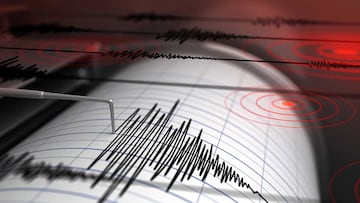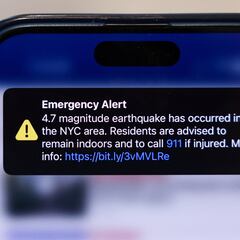What should I do during an earthquake and what emergency supplies do I need?
You never know when or where an earthquake can strike, as residents of New York City discovered on Friday morning. However, you can be prepared. Here’s how.

Earthquakes can strike at any time and while there are places that are more prone, they can occur virtually anywhere in the world. People on the East Coast were made aware of that on Friday morning when a 4.7 earthquake in New Jersey shook the surrounding area, including New York City.
While we still can’t predict when an earthquake will happen, we can make preparations. Just as we should for any potential disaster that may befall us.
What should I do during an earthquake and what emergency supplies do I need?
Many of the supplies you will need for an earthquake are similar to those you would want on hand for any emergency like a hurricane or tornado.
Two of the basics are food and water. The California Earthquake Authority recommends a three-day supply of each. The US Geological Survey recommends having a two week supply of water. Both agree that you should stock one gallon of water per person per day for drinking and sanitation.
You will also want to have purification tablets or chlorine bleach to purify drinking water.
Food should be non-perishable in cans or packages. Remember to include a manual can opener. And don’t forget about your pet’s food and water needs too.
Emergency supplies
- Fire extinguisher
- First aid kits and handbook for your home and autos
- Flashlights in every room with extra batteries
- Portable radio with extra batteries
- Power packs for phones
- Prescription medications
- Extra pair of glasses
- Whistle (to signal for help)
- Swiss Army knife
- Wrench or pliers to turn off gas and water supplies
- Copies of your personal documents
- Cash, small bills are best
- Camp stove or barbecue to cook on outdoors away from shelter (store fuel out of the reach of children)
- Waterproof, heavy-duty plastic bags for waste disposal.
- Plastic sheeting and duct tape
Not only will you want to get an emergency kit put together but you should also learn some simple survival skills. You can get lessons on first aid and CPR through your local Red Cross.
You should identify any hazards in your house that could be shaken loose and secure them. Also make a disaster plan with your family members of where you will meet in the event of a disaster and how you will communicate.
Related stories
You will also want to make all of your household members familiar with how to turn off the utilities including the electricity and gas which can help prevent fires after the disaster. Note that you will need a professional to turn the gas back on after its been turned off.
Also you’ll want to close the main water line that enters you house as pipes can break allowing the water to get contaminated. Do not open the valve until authorities tell you that the water is safe to drink.



Complete your personal details to comment